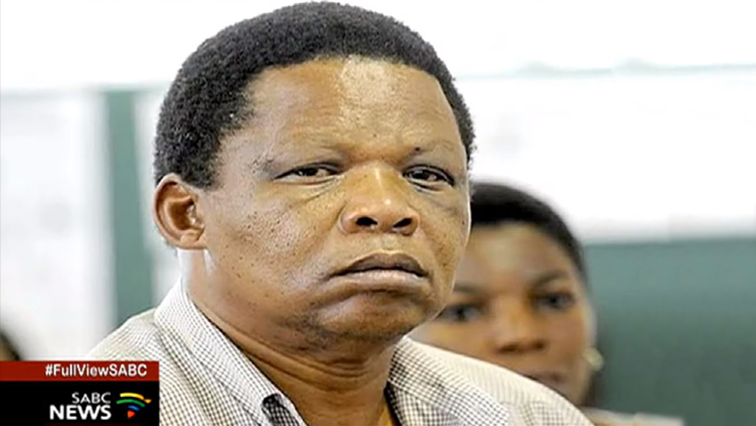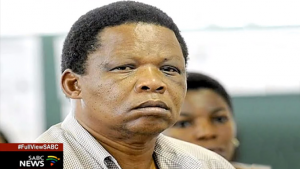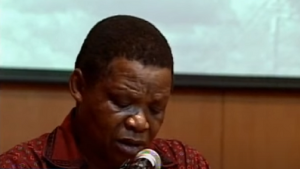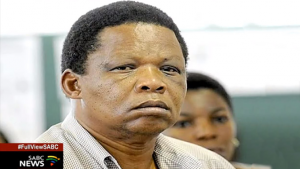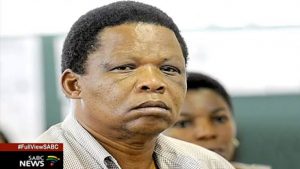If it were not self-restrictive, I would describe the late Jon Qwelane as a “doyen of black journalism”. But to do so would undermine his immense contribution to the advancement, protection and promotion of the craft.
Qwelane burst into journalism via back-door. A wordsmith of note, he was lurking in his hometown of Mafikeng in the North West, working as a clerk in the post office.
Initially contributing as a freelancer to the legendary Mafikeng Mail, he never stopped telling the story of how Oom Leslie Sehume played a major part in recruiting him to the mainstream media in Johannesburg.
There, he excelled, no doubt, frantically learning on-the-job as he had no formal training in journalism.
When we both represented the Forum of Black Journalists at the Truth and Reconciliation Commission (TRC) in 1997, Qwelane decried the historical lack of training for black journalists, a deliberate act, he charged, meant to keep blacks at the bottom rung of the newsroom hierarchy.
He spoke about himself with unmistakable pride as a renowned newsman, telling the TRC: “I learned through trial and error.” His situation was not unique to himself.
When he edited Tribute magazine, he asked me to contribute a piece to which without my prior knowledge he wrote a brief biography of myself, revealing details about me which I had thought was strictly a matter between both of us.
He wrote: Before bursting into journalism, Abbey Makoe was a trench-digger in Rustenburg…”
Like him, and many black journalists of different generations, “trial and error” was the best teacher from the University of Life.
Bra Jon, as we fondly called him, had a complex character. He was my first black editor in a career spanning three decades when I first worked under him in the now-defunct Sunday Star at the famous 47 Sauer Street, Johannesburg, the HQ of the Argus newspapers.
Once when I threw my toys out of the cot, he gave me a couple of weeks before gently and politely approaching me. With his hand around my shoulder, he gave me a piece of brotherly advice about what maketh a man and what marks out a good journalist.
He taught me the ethos of professionalism and ethical behavior. He was the most senior black newsman in the entire building and boy, by example didn’t he lead? He broke stories, the one that comes to mind being the apartheid-backed vigilante group in Kroonstad, Free State.
He challenged the apartheid government when the Bureau of Information contradicted the facts of his story, and his good friend and fellow editor, the late Dave Hazelhurst, stood firmly behind Qwelane, who dared the police to arrest him.
He loved Pan-Africanism and the PAC, later naming his only son Sobukwe after the founding leader of the PAC in 1959, Mangaliso Robert Sobukwe.
Qwelane was a freedom fighter in his own right, putting across scholarly articles and raft of erudite columns in The Star and Saturday Star under the titles Jon’s Jive and Just Jon respectively. To him, the pen was mightier than the sword.
On behalf of the hordes of black scribes, he shone head and shoulder above the rest in sheer excellence as if to prove that although English might not be our mother tongue, we could still excel at the Queen’s language regardless.
To be honest, Qwelane was not always easy to deal with and had a streak of “my way or the highway”.
This he exhibited even at a great cost to himself and his livelihood.
When together with other black scribes we prepared to challenge the SA Human Rights Commission’s adverse ruling on the Forum of Black Journalists’ race-based membership, Qwelane’s immediate take was either we take the matter to the highest court in the land – the Constitutional Court or simply, in the light of the absence of black outrage, just close shop.
After extensive deliberations, we chose the latter, a decision we stood by to the end. For ten years as a talk-show host on the Radio 702, Qwelane drastically increased the listenership. He attracted the black middle-class to the station and his show, from 9 pm to 12 midnight, became a must-never-miss.
But Qwelane could also be his worst enemy. When he began to fall-out with the powers-that-be at Prime Media, he wrote a brutally disparaging column in the Sunday Sun about the Jewish mafia in charge at 702.
I was now working in London when he wrote me a deeply sad email, saying: “Abram, Whitey has got me where it hurts the most – in the pocket…”
At this stage, he was unemployed, unable to pay his bills and his wife, a nursing sister, was being victimized at work for simply being Mrs Qwelane. The days were dark for him. Friends very few. Black editors abounded, many of whom he had mentored, but none could dare employ him.
Times were rough. But, typically, he wouldn’t wallow in self-pity. He continued to knock on doors. And in 2010, thankfully, the ANC government roped him in the Department of International Relations and Cooperation, appointing him SA’s ambassador to Uganda.
He kept friends who had earlier deserted him at bay. An adherent to principle, he believed till the end that it is better to be a peasant on your feet than a gentleman on your knees.
Qwelane will be laid to rest in Mafikeng this week. Fare thee well Bra Jon. Go well mate. Hamba kahle! son of the soil.


